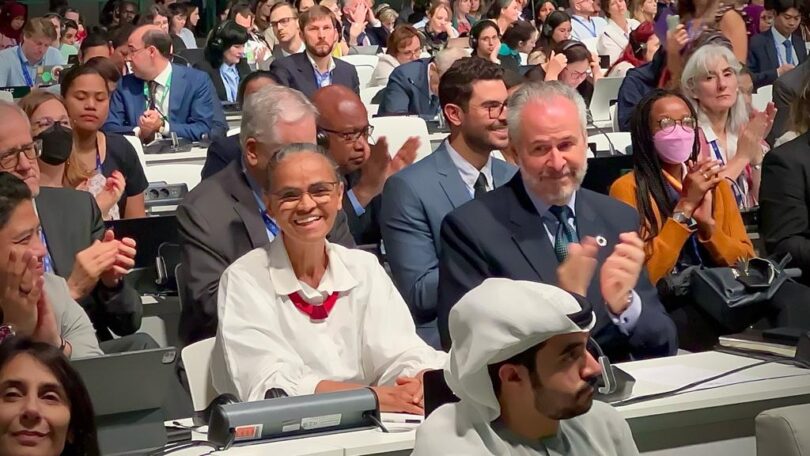The decision to host the 30th Conference of the Parties to the United Nations Framework Convention on Climate Change (COP30 of the UNFCCC) in Brazil, between November 10 and 21, 2025, was approved yesterday.
The decision was adopted by consensus in the plenary session of COP28, currently taking place in Dubai. After its adoption, the Minister of the Environment and Climate Change and head of the Brazilian delegation, Marina Silva, formally announced that COP30 will be held in the city of Belém do Pará. It will be the first time that the Amazon, a crucial biome for combating climate change, will host a COP of the UNFCCC.
“With its immense biodiversity and vast territory threatened by climate change, the Amazon will show us the way. It will also remind us of how the three Rio Conventions are intertwined not only in their challenges, but also in the synergistic solutions it provides. Holding COP30 in the heart of the forest is a strong reminder of our responsibility to keep the planet within our 1.5°C mission,” said Minister Marina Silva.
The candidacy to host COP30 in Belém was announced by President Luiz Inácio Lula da Silva, still as the president-elect, during his participation in COP27 in Sharm-el-Sheikh in November 2022, and subsequently endorsed by the Group of Latin American and Caribbean States in May 2023. In August 2023, Belém hosted the Amazon Summit (IV Meeting of the Presidents of the States Parties to the Amazon Cooperation Treaty).
It was also decided today that COP29 of the UNFCCC will be held in Azerbaijan.
The ongoing COP28 is expected to conclude the first global stocktake (GST) of the Paris Agreement. COP29, in 2024, will be responsible for defining the new collective quantified goal for climate finance. By COP30, in 2025, countries will submit the second round of nationally determined contributions (NDCs).
The climate emergency demands that all countries, in the two years leading up to COP30, redouble their efforts to implement the NDCs already committed to. And that in Belém do Pará, with the necessary means of implementation, all countries can announce even more ambitious NDCs.







